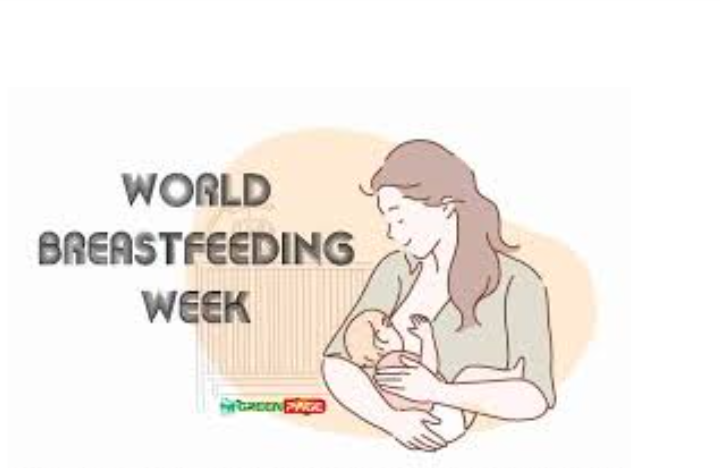As the 2022 World Breastfeeding Week (WBW) celebration kicks off, Federal Ministry of Health
(FMoH) is advocating for breastfeeding-friendly environments for mothers and babies.
The minister of State for Health, Joseph Ekumankama, made the government’s position known at the launch of the Aug. 1 to Aug. 7
WBW on Monday in Abuja.
Reports have it that WBW aims to highlight the huge benefits that breastfeeding can bring to the health
and welfare of babies and benefits to maternal health, focusing on good nutrition, poverty reduction, and food security.
Our correspondent also reports that WBW started with a declaration to encourage breastfeeding and improve infant health around the world
in August 1990 by government policymakers, WHO, UNICEF and other stakeholders to protect, promote and support breastfeeding.
In 1991, the World Alliance for Breastfeeding Action (WABA) was formed to act on the 1990 Declaration, and as part of the action
plan, WABA introduced the concept of a globally integrated breastfeeding strategy, and later, the idea of celebrating
it for one day turned into a week and came to be known as WBW.
The first WBW was celebrated in 1992. Now, it is celebrated in more than 100 countries across the globe.
The theme for this year’s celebration is “Step up for Breastfeeding: Educate and Support”, focusing on strengthening the capacity of
actors in the protection, promotion and support of breastfeeding across different levels of society.
The minister, therefore, stressed the importance of breastfeeding, saying “it is the foundation of child survival, health, growth and
development; it provides every child with the best possible start in life.
“It delivers health, nutritional and emotional benefits to both mother and child. It also forms part of a sustainable food system.
“Breastfed babies have stronger immunity, reduced risk of infections and many childhood illnesses, and may also have longer-term
health benefits, including reduced risk of overweight and obesity in childhood.”
According to the minister, studies have shown that obesity rate is 15-30 per cent lower in breastfed babies compared with formula-fed babies.
Ekumankama said that mothers also benefit enormously from breastfeeding “as it helps to prevent post-partum bleeding and lowers the
risk of breast and ovarian cancers.
“It can even reduce the risk of developing osteoporosis, diabetes, cardiovascular disease, high blood pressure, high cholesterol
and it lessens the severity of postpartum depression.”
He said that the global breastfeeding report highlights remarkable new evidence in the health and economic benefits of breastfeeding;
reiterating the importance of breastfeeding as fundamental driver in achieving the UN Sustainable Development Goals (SDGs).
The minister said that inadequate feeding practices and malnutrition contribute to over 50 per cent of under-five children’s mortality,
with 2/3 of the deaths occurring in the first year of life closely related to poor breastfeeding practices.
He added that “as a nation, breastfeeding is one of the smartest investments we can make toward human capital development. It offers
children unparalleled health and brain-building benefits.
“It has the power to save the lives of women and children and help our national economy to grow through lower healthcare costs and a
smarter workforce.
“The ministry remains committed to eradicating malnutrition and improving breastfeeding rate at cost-effective means.
“We aim to reach the 2025 World Health Assembly target of raising the rate of exclusive breastfeeding to at least 50 per cent.
“We recommend early initiation of breastfeeding within one hour of birth, exclusive breastfeeding for the first six months of life, continued
breastfeeding up to two years of age or beyond, with the introduction of nutritionally-adequate and safe complementary foods
from six months.”
According to him, the FMoH, through the National Agency for Food and Drugs Administration and Control (NAFDAC) and other stakeholders
will continue to enforce the code for marketing of Breast Milk Substitutes (BMS) to address threats that unwholesome marketing
poses to optimal breastfeeding practice in Nigeria.
He said this is fundamental to protecting the public and healthcare staff from inappropriate marketing by infant formula companies.
Ekumankama said the entire support system, particularly healthcare staff that were in contact with breastfeeding mothers needed to
understand the code and their role in its implementation.
“Without such knowledge, they are vulnerable to direct and indirect marketing,” he said.
The minister said that government, through the ministry would continue to invest in consistent training programmes for different
levels of health professionals – doctors, nurses, midwives, community health workers and others.
“This is because health professionals play critical roles in supporting women to breastfeed, and to do this effectively,
they need appropriate knowledge.
“The knowledge of health outcomes associated with different methods of infant feeding and the physiological process of lactation,
combined with positive, non-judgmental attitude and effective communication and practical support skills are highly essential,” he explained.

















Discussion about this post